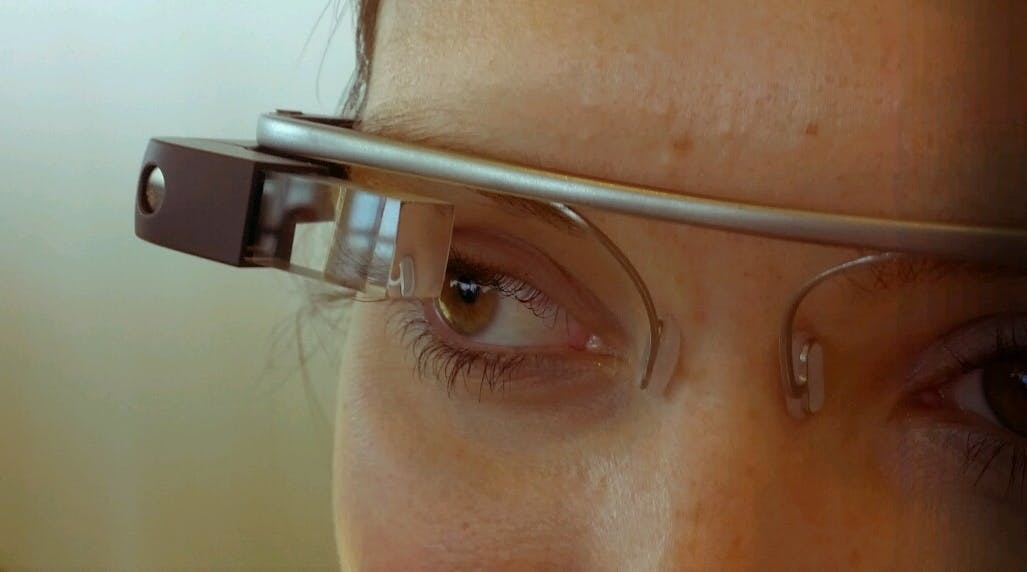Privacy-conscious facial recognition AR with social media?
Jun 2023—"If only I could remember people's names, I would be the most powerful person on earth." - Nilay Patel, Editor-in-chief of The Verge

An oft-repeated maxim on The Vergecast, Nilay has commented that the true killer app for augmented reality is being able to look at someone and know their name. The followup quip is that this would require a global facial recognition database, a privacy nightmare beyond compare. I tend to agree on both counts - everything I've seen so far from AR is niche where this might have legs, but I can't think of a single body on earth I'd trust to run a system like this.
Context: I'm fascinated by wearable tech. I don't want to put a chip under my skin, but I love thinking about the future of human-computer interaction and how we can be more engaged with the real world.
Nilay's idea got me wondering. Can we make any progress on this problem? I have a narrow and somewhat silly use case which might be a step in that direction.
Scene: a "networking event" with "industry people"
Person A: "oh hey Dan it's been a while, I hope you've been doing well"
Me: *panics*
Me: *remembers I'm wearing Google Glass, blinks to show names*
Me: "oh hey Chris Christopherson it's good to see you"
I'm not a networking event person, but for people who are, they probably have quite a large network on LinkedIn. LinkedIn, home of the high-quality direct-face-on be-suited professional profile photo, ideal for AI tooling to compare faces from a camera feed against.
Can I download the profile photos of people in my own personal LinkedIn network to my own personal device and use my own personal machine learning to figure out who this person is? We can do a fair amount of ML work directly on devices now, so you wouldn't need to participate in the feared global facial recognition database.
Benefits of this approach
- I have permission for all the data (previously established LI connection)
- Facial recognition not centrally managed
- No network lag
Holes in this approach
- Have to be connected with the person already, limited utility1
- More difficult to match based on one photo
- Other social media networks don't have such a strong standard of profile photo - facebook and instagram would have much lower quality data, limiting the reach of this social media profile approach
- What device can this run on? Google Glass is effectively dead, and what, you're gonna walk around an event with your phone camera out?
Helping hustlers hustle isn't exactly saving the world. In fact, for the networking event case just ask people to wear name tags and problem solved - using AR is the most over-engineered solution I can imagine. But I'm more curious whether this on-device people-whose-photos-I-can-access system could be useful in other ways.
- Public figures? Don't want to download a picture of every human in the public record, but what if you wanted to watch the Oscars and remember who everyone is?
- Meet someone at an event, (with their permission) take a photo with the glasses and add them to my own personal, private, local facial recognition database
- Some people really struggle to put names to faces - could this be useful for a medical niche, like the extremely neurodivergent or people with brain trauma?
Realistically, the utility of this is a ways off. I haven't actually built this, if you read this hoping to find a download link. Even if I wanted to make a prototype using a phone camera there's too many new things I'd need to learn for it to be a good side project.2 There's definitely prior art in on-device facial recognition that someone else should extend with a "Log in with LinkedIn" button. Let me know if you do something like this!
Thanks for reading.
Photo credit Wikimedia Commons- Events sometimes share the (opted-in) contact details of people in advance of an event, sometimes through LinkedIn groups, so you might be able to build that digital network before you've actually met people↩
- I got some good advice once that for a good side project in tech you should limit yourself to one new thing at a time, or you risk burning out on the idea before your dream comes to life. I'd need to learn mobile dev and AI which are entire careers on their own. :joy: Even if I stuck to web, I'd need want to implement with worker threads and robust use of localStorage so it's A Lot for a brain fart.↩